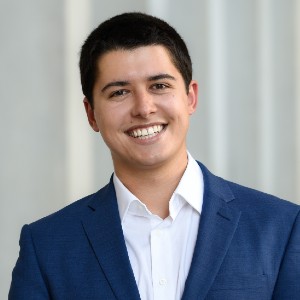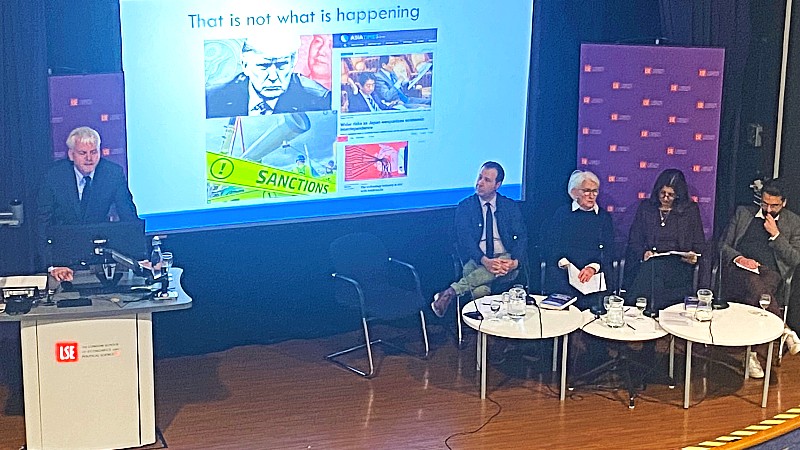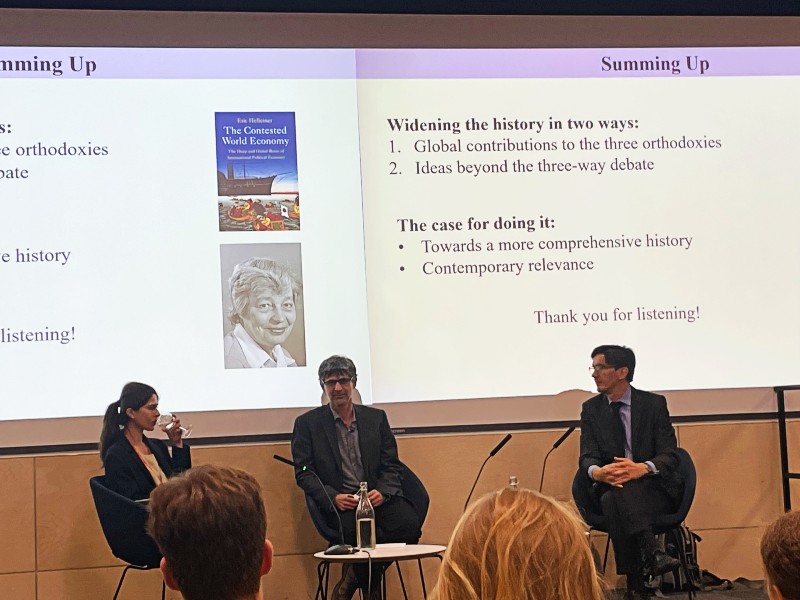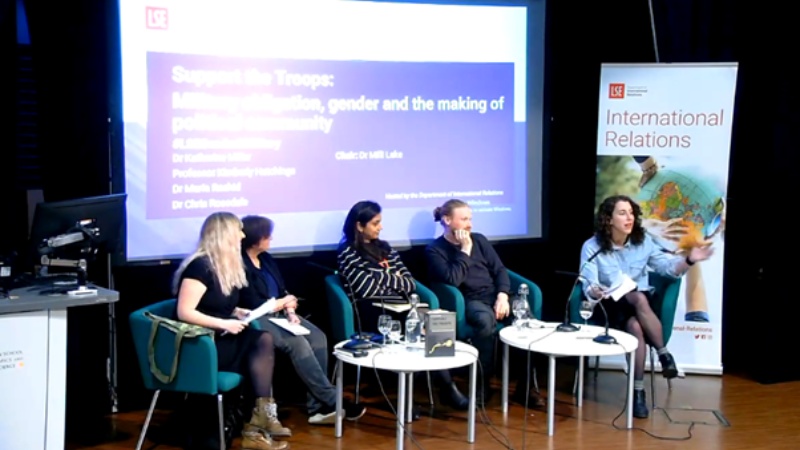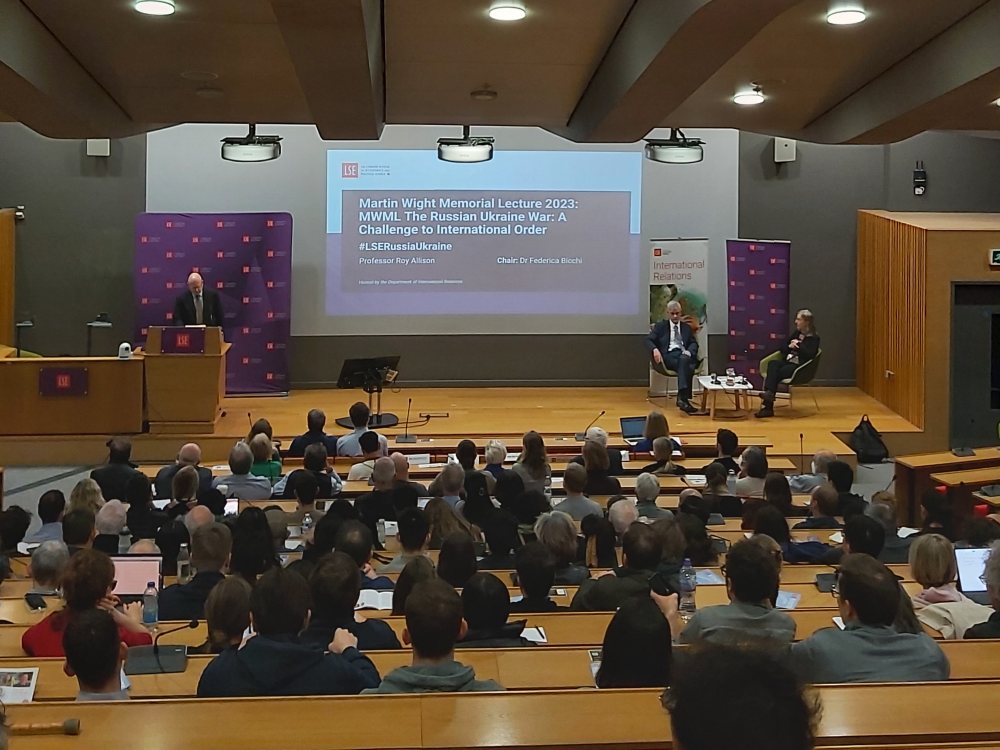On Monday 5 February 2024, Professor Madawi al-Rasheed delivered the Department of International Relations’ Fred Halliday Memorial Lecture. A visiting professor at the LSE Middle East Centre, al-Rasheed presented her latest book The Son King: Reform and Repression in Saudi Arabia. The packed event was chaired by Professor Jeffrey Chwieroth, Professor in the IR Department and Head of Department at LSE.
- Find out more about the event and speakers
- Listen to the audio podcast
- Watch the perils of Saudi nationalism on YouTube
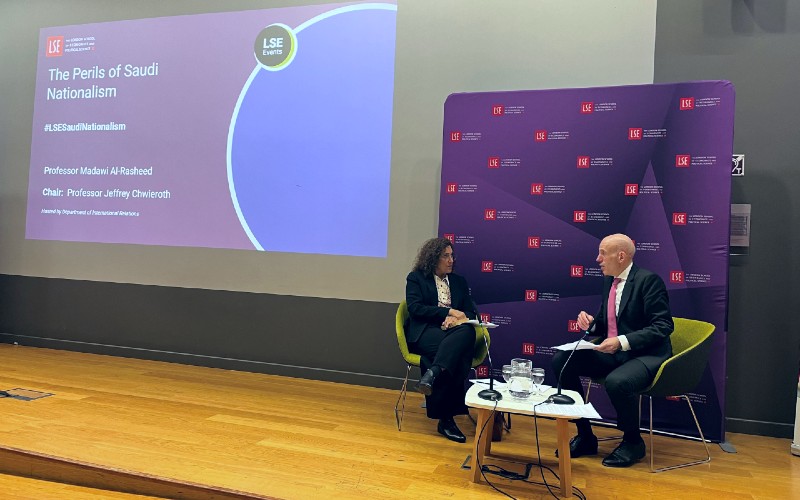
L to R: Professor Madawi Al-Rasheed and Professor Jeffrey Chwieroth (Chair)
Al-Rasheed began the lecture by detailing her intellectual proximity to Fred Halliday, a former Professor of IR at LSE and formidable writer on the Middle East. Inspired by Halliday’s Arabia Without Sultans, al-Rasheed explained how her training in anthropology and engagement with anti-imperialist, revolutionary literature frames the core of her work today.
Al-Rasheed’s lecture focused on the development of the Saudi state. Describing her experiences growing up in Saudi Arabia under King Faisal, a regime surrounded by reports of torture, public executions, and political prisoners, al-Rasheed’s first interest in studying Saudi Arabia arose during her time at the American University of Beirut, where she worked with Saudi dissidents and exiles.
Al-Rasheed laid out three distinct nationalisms unique to Saudi Arabia, the core argument of her book. The first phase constructed the Saudi state as an Islamic utopia—as the guardians of two Muslim holy sites, early Saudi religious nationalism saw the state as an “agency for upholding the piety of the nation.” The second phase took place under King Faisal, where Saudi Arabia sponsored pan-Islamism throughout the Middle East and Central Asia; notably, this expansion was directly supported, al-Rasheed argues, by the West in their Cold War fight against communism. The final phase began in 2000 but has ramped up under Crown Prince Mohammed bin Salman (MBS)—this nationalism constructs Saudi Arabia as both an investor friendly, neoliberal post-oil utopia and a state where Saudi citizens, particularly youth, are seen as a homogenous group driving forward the country’s progress. Under MBS, al-Rasheed explained, Saudi nationalism has embraced the country’s pre-Islamic past, reimagined Saudi geography, shed regional and sub-national identities, and become hyper-masculine.
Saudi nationalism has embraced the country’s pre-Islamic past, reimagined Saudi geography, shed regional and sub-national identities, and become hyper-masculine.
Questions from the audience varied, from recent state-backed assassinations to the role of women in the new Saudi nationalism. All of these, al-Rasheed argued, were a symptom of the new Saudi nationalism: to consolidate the political and repressive power of MBS. I left the lecture wondering if al-Rasheed’s analysis could be applied to other regimes in the Middle East—similar levels of neoliberal economic development can be seen in Qatar and the United Arab Emirates; do these states face similar types of pernicious nationalism? Nonetheless, the lecture inspired sustained scrutiny of the Saudi state as it continues expanding its economic and political reach.
Event report by Ethan Dincer, MSc International Political Economy
